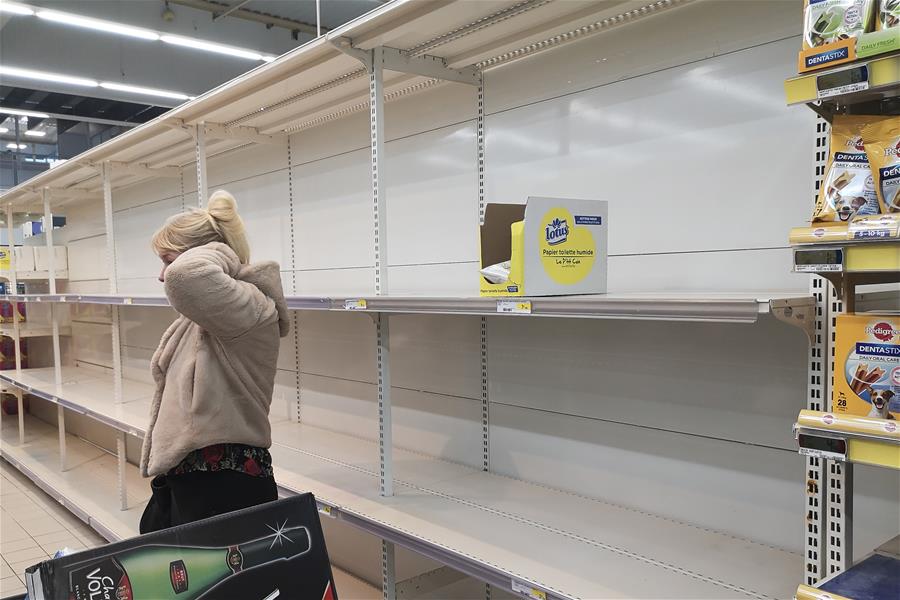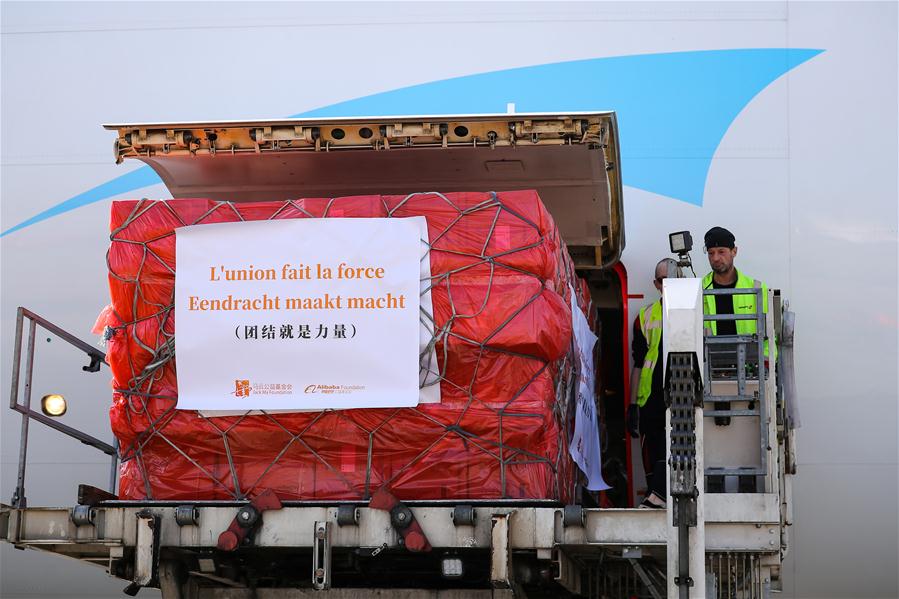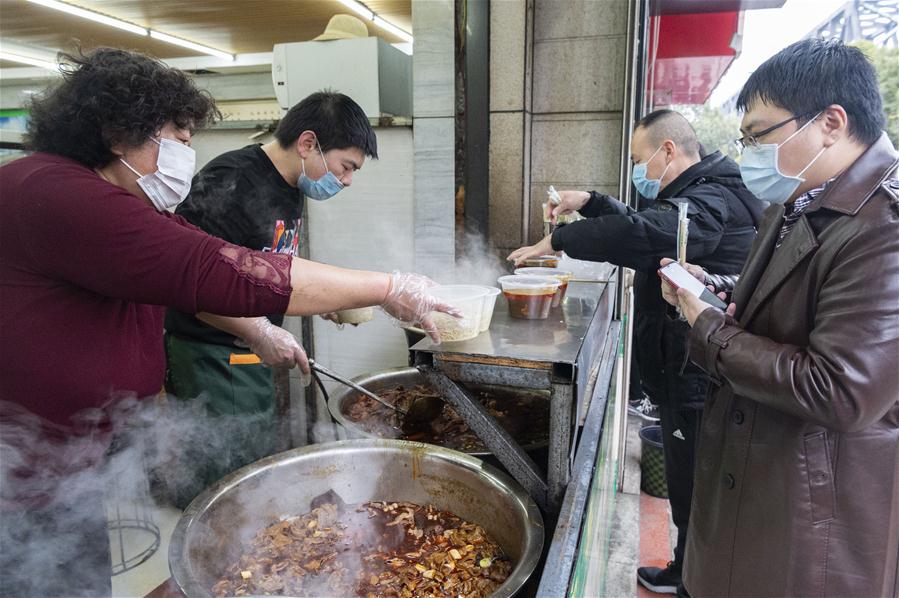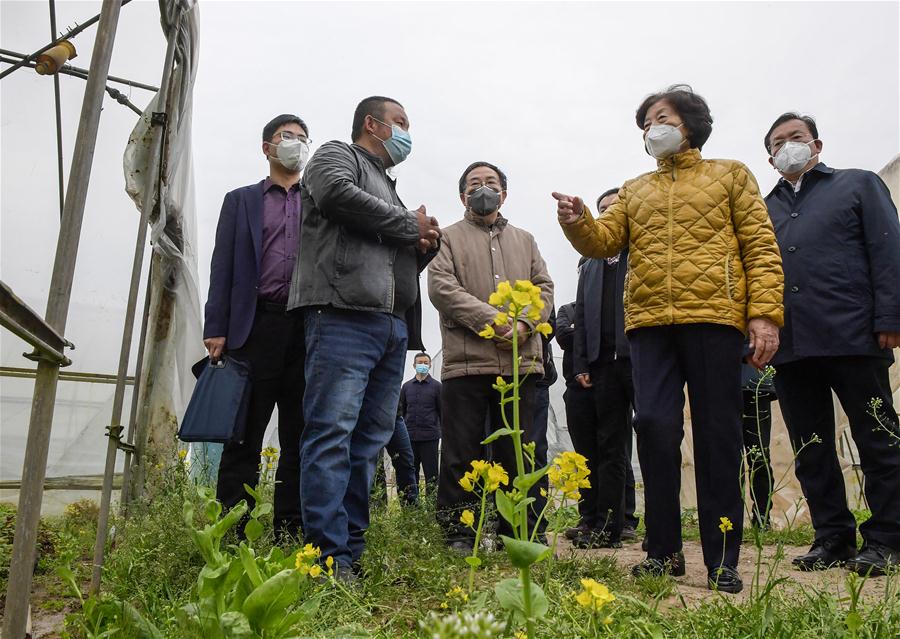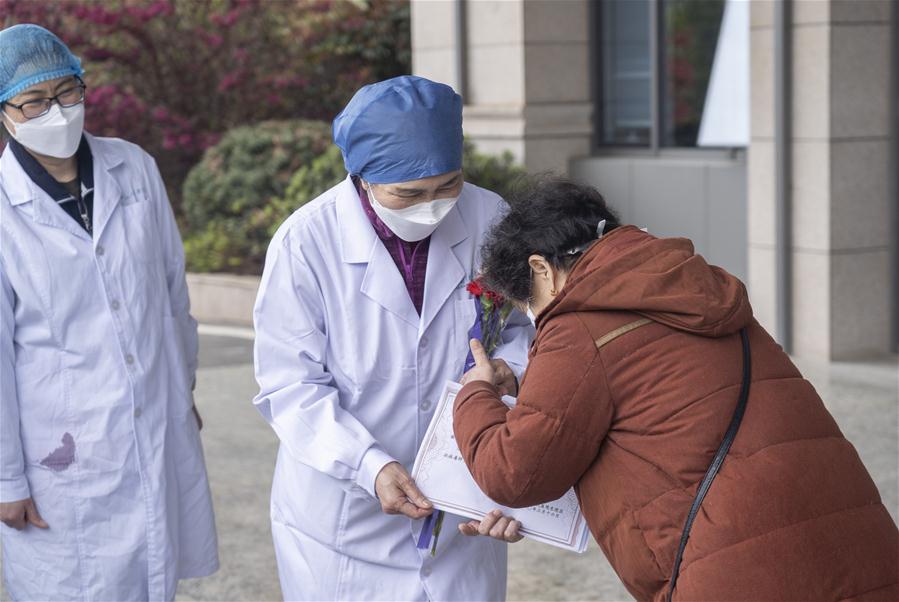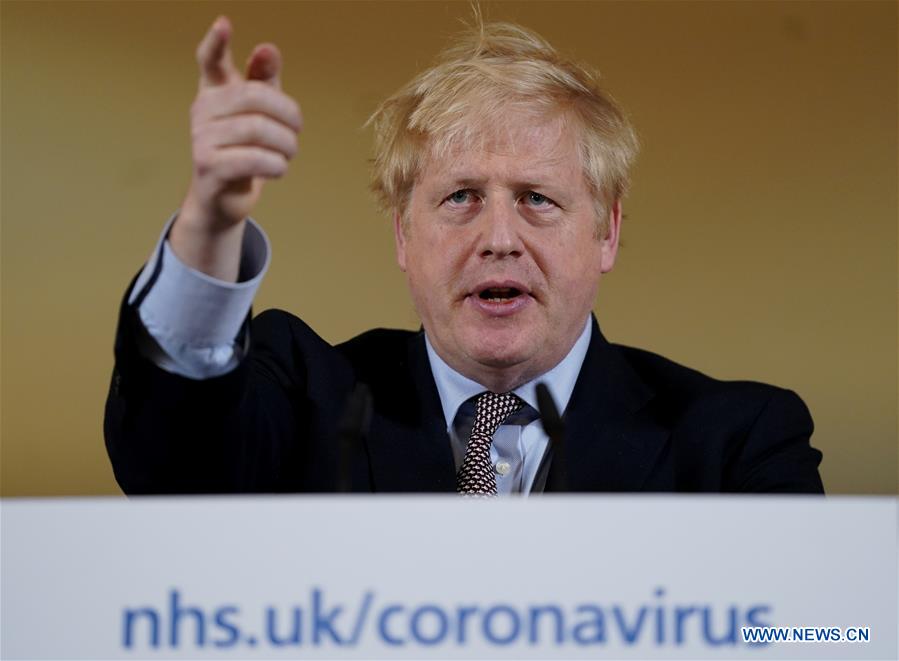
British Prime Minister Boris Johnson speaks at a press conference inside 10 Downing Street in London, Britain, on March 16, 2020. British Prime Minister Boris Johnson on Monday urged the people, especially residents of the hardest-hit London, to avoid "non-essential contact" in fighting the spread of novel coronavirus, which he said is "very disruptive." Boris Johnson gave his first daily televised update on coronavirus after chairing a meeting of the COBRA emergency committee to coordinate the government's ongoing response to coronavirus. (Andrew Parsons/No 10 Downing Street/Handout via Xinhua)
LONDON, March 16 -- British Prime Minister Boris Johnson on Monday urged the people, especially residents of the hardest-hit London, to avoid "non-essential contact" in fighting the spread of novel coronavirus, which he said is "very disruptive."
The statement came as the prime minister was giving his first daily televised update on coronavirus after chairing a meeting of the COBRA emergency committee to coordinate the government's ongoing response to coronavirus.
"Now is the time for everyone to stop non-essential contact with others and to stop all unnecessary travel," the prime minister said.
"Anyone who lives with someone who has a cough or a temperature should stay at home for 14 days. People should start working from home where they possible can," Johnson said.
Meanwhile, the prime minister also asked people to "avoid pubs, clubs, theatres and other such social venues."
From Tuesday, the British government will no longer be "supporting" mass gatherings using emergency workers, he said.
Groups particularly vulnerable to COVID-19 will be asked to stay at home for 12 weeks by the weekend, he said.
The prime minister made the plea just hours after British health officials confirmed a total of 1,543 people have tested positive for the virus in the country since the outbreak. Concerns are rising as Britain is taking less stringent measures than other European countries.
London is a few weeks ahead in terms of the virus curve than other places, meaning transmission is happening more rapidly, Johnson said.
For this reason, those in the capital city need to be "especially cautious," he said.
The government recognises that the "very draconian" measures he has outlined will be "asking a lot" from the everyone, added Johnson, who was the former London mayor.
London is at the center of the escalating coronavirus outbreak in Britain, according to the latest official figures.
Hospitals in the capital are braced for a wave of cases within weeks as a sharp rise in the number of deaths -- to 53 by Monday in Britain according to Health Secretary Matt Hancock -- suggested it is a fast-developing situation.
All of the top 12 areas with the highest number of COVID-19 cases are in the capital or in commuter-belt counties, according to official figures.
As of Sunday, out of 1,099 confirmed cases in England, 407 were in the London NHS region.
With the capital being hardest hit, Mayor Sadiq Khan also appealed to Londoners to look after the elderly and people with underlying health conditions who are most in danger.
"Our priority must always be to look out for the older and more vulnerable people in our communities who may be most at risk," the mayor said ahead of a visit to Croydon to reassure Londoners about the capital's response to COVID-19.

